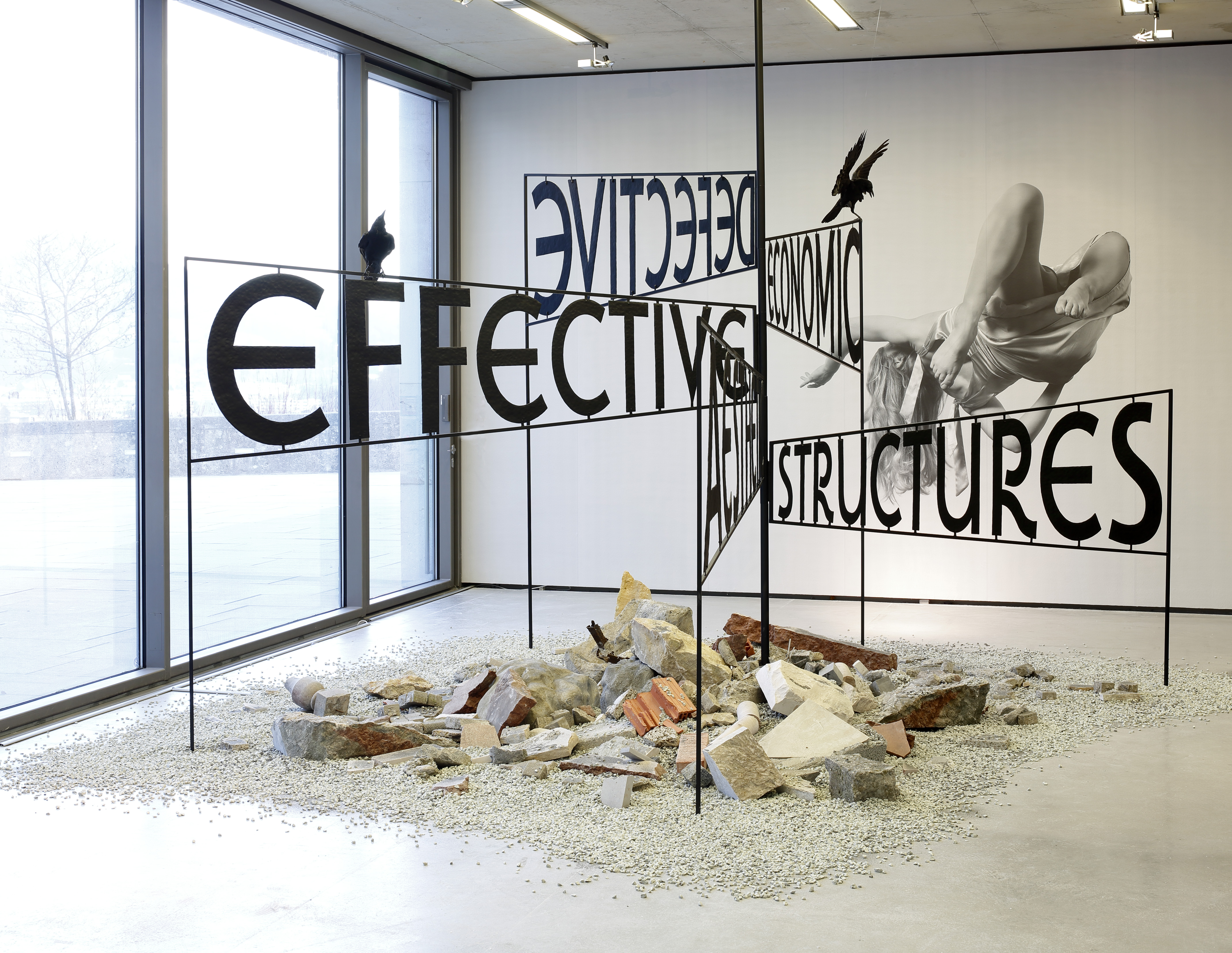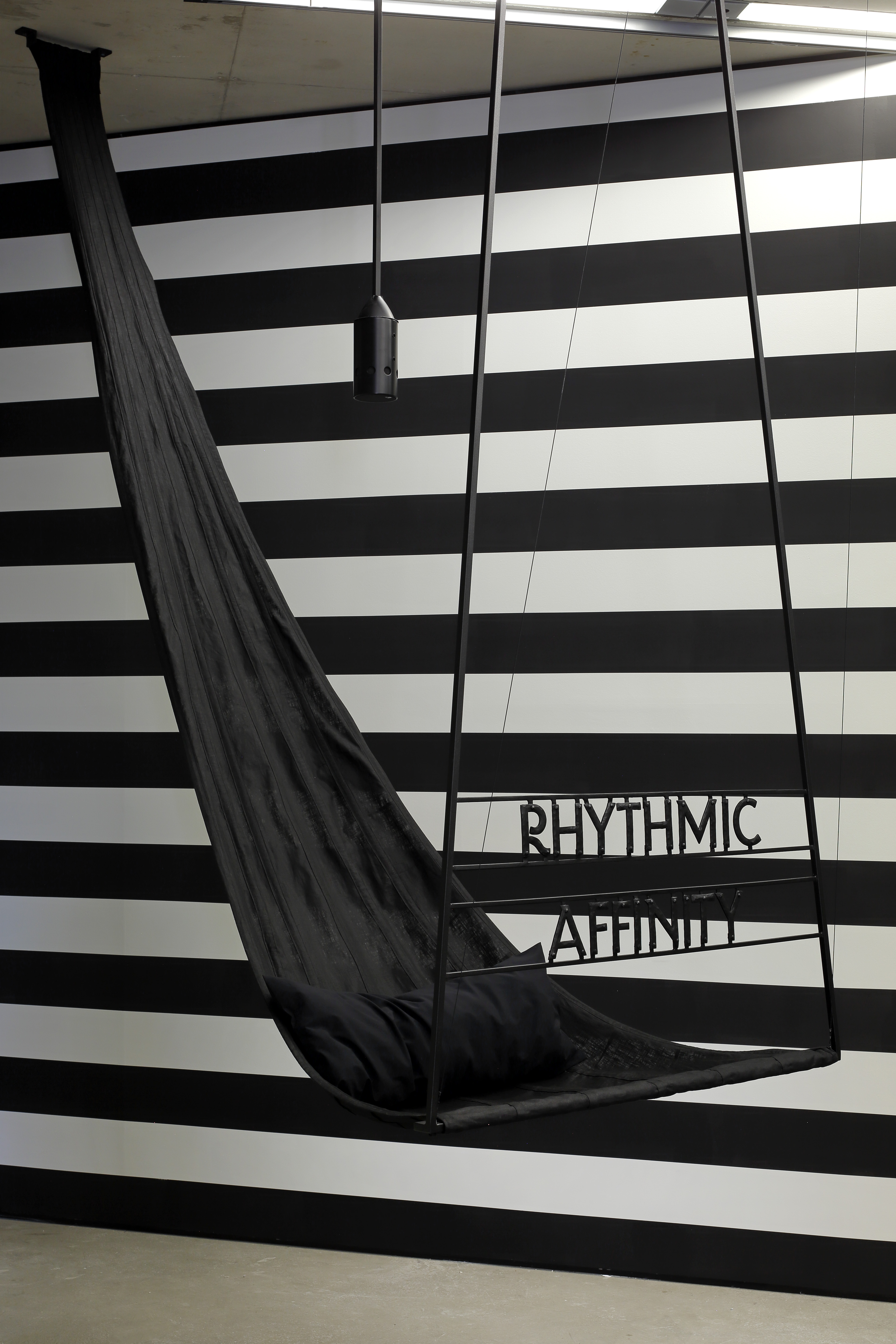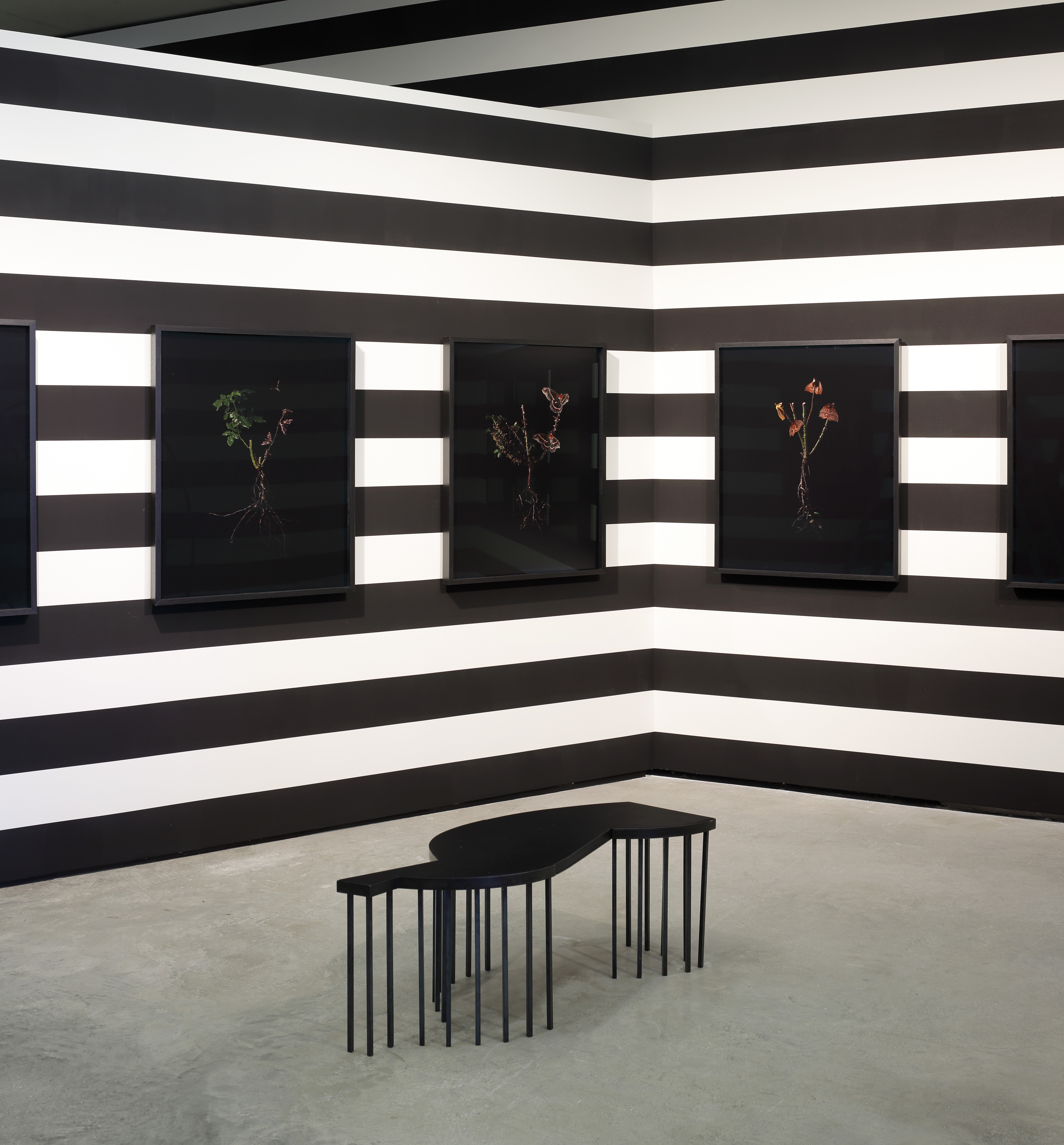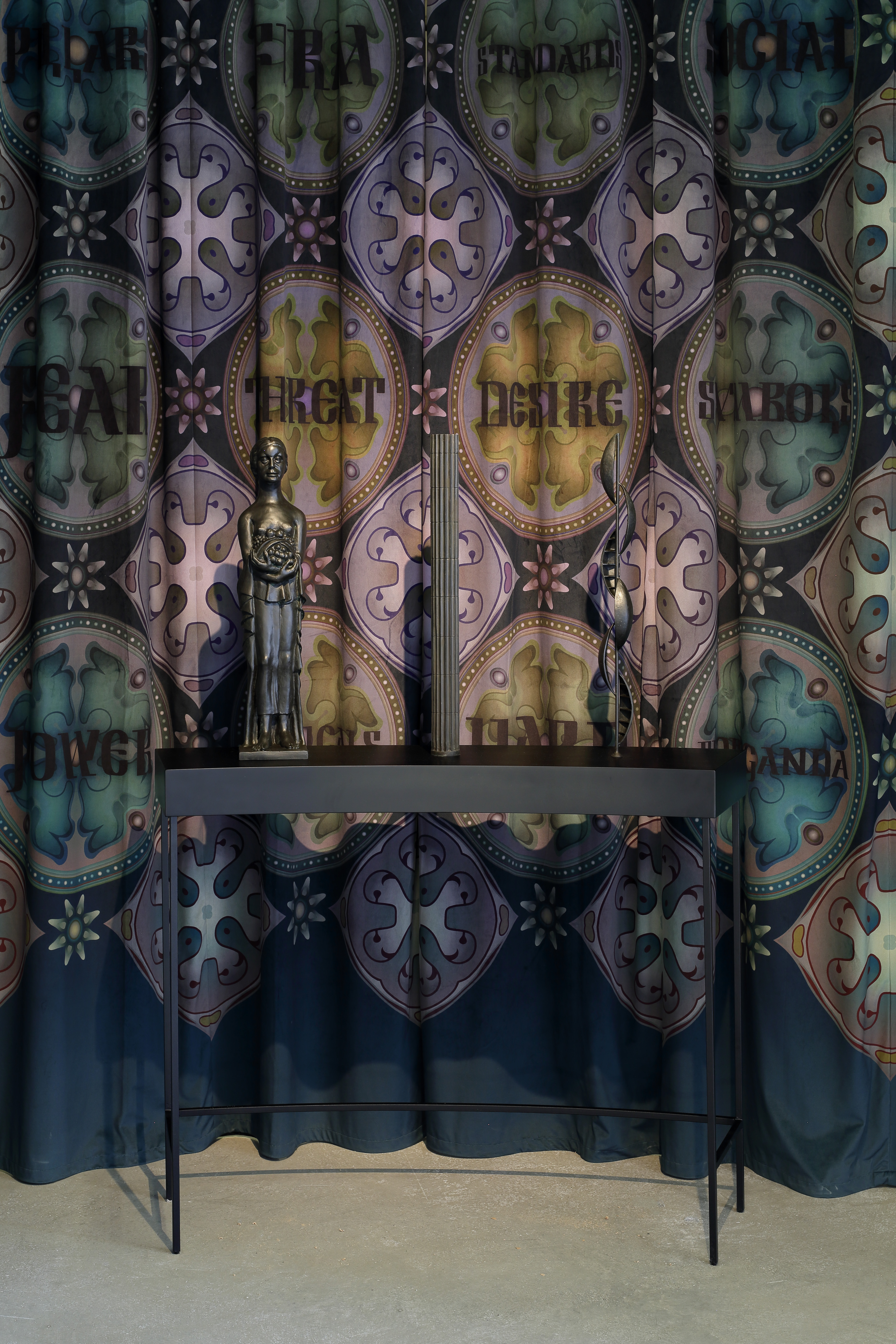Artist: Jasmina Cibic
Exhibition title: Most Favoured Nation
Curator: Marijana Schneider
Photo: Rainer Iglar
Venue: Museum der Moderne Salzburg
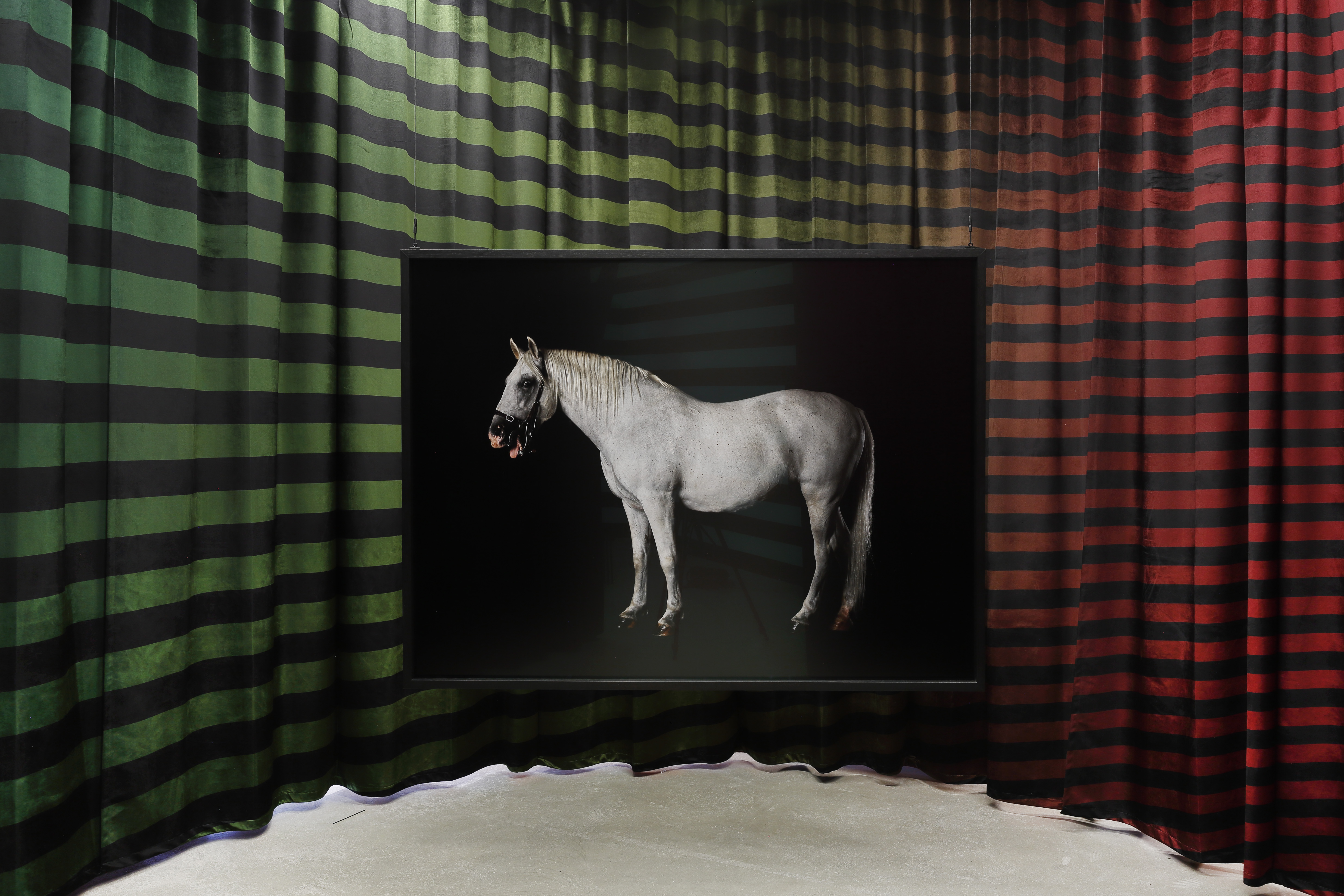
In her multimedia works, artist and filmmaker Jasmina Cibic (Ljubljana, SI,1979) explores the intertwinements of state power, culture, and gender constructs. Cibic looks at historical events from a feminist perspective and examines the visual strategies which appropriated the female body, in imagery and architecture, to shape a nation’s identity and myths. She considers the mechanisms of soft power – the instrumentalization of culture by political forces – during moments of historical, social, and ideological crisis. Through archival research, Cibic seeks out artworks, architecture, and music in which political interests and the rhetoric of national power are expressed. She pays particular attention to the explicit political aims behind the rituals of cultural diplomacy. Her research is translated into immersive theatrical compositions that include photographs, performances, installations, and films.
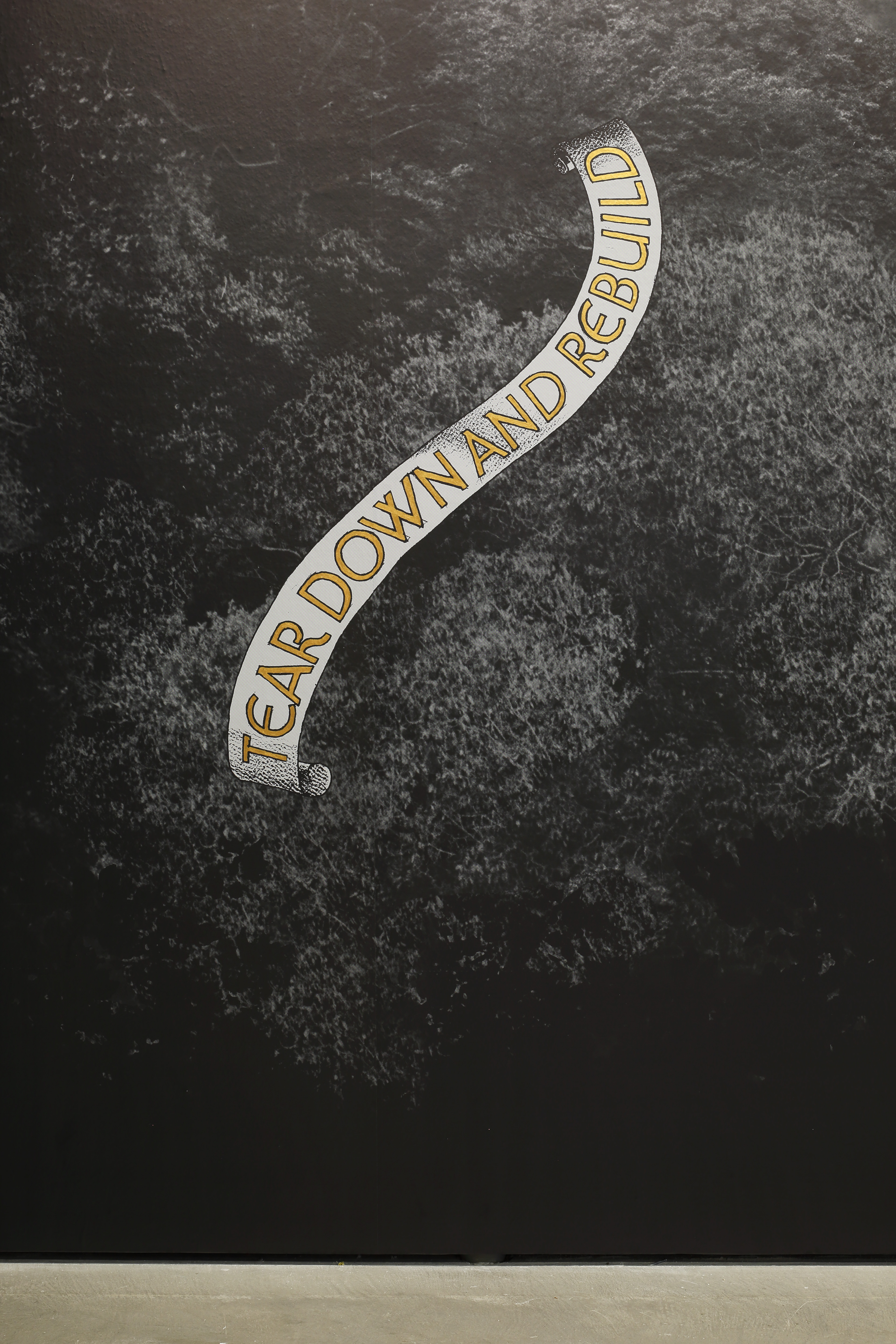
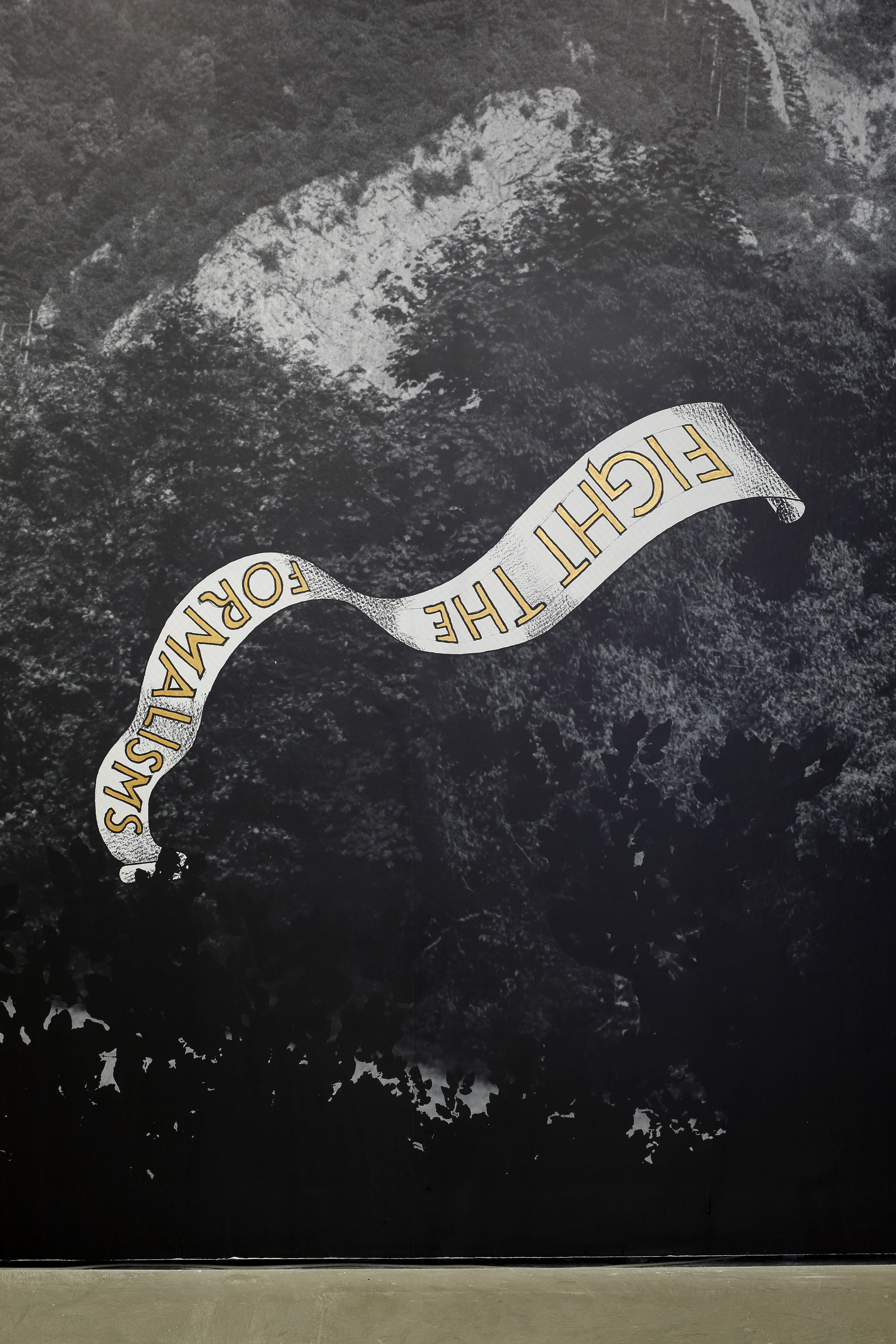
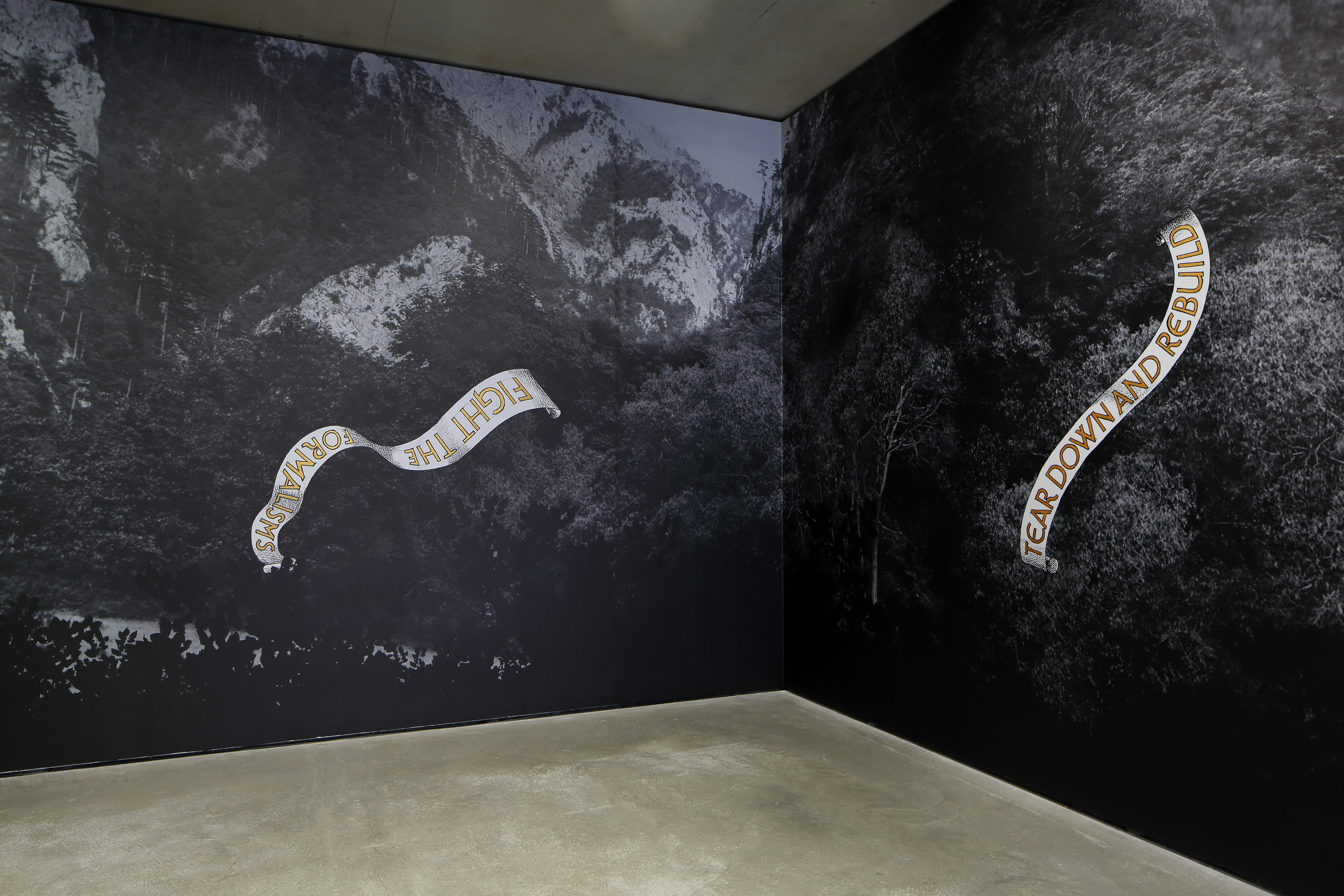
Cibic creates site-specific Gesamtkunstwerks that engage all the senses: she designs architectural spaces that blend films, photographs, sculptures, sound, and scent to produce powerful scenographies. Wall-filling murals, pattern-printed curtains, and custom-designed pedestals and seating are examples of Cibic’s spatial translations of historical references. Such works weave a thematic and formal network of relationships that is embedded within museum architectures. The elements are highly diverse, based on found objects, minutes of meetings, artworks, or scores that Cibic has tracked down over the course of her often years-long research in archives and collections. With an analytical eye, she dissects their histories of origin, formal languages, and connections to their respective repositories, identifying the found objects, which she calls “historical readymades,” as examples of the entanglements of political power and culture.
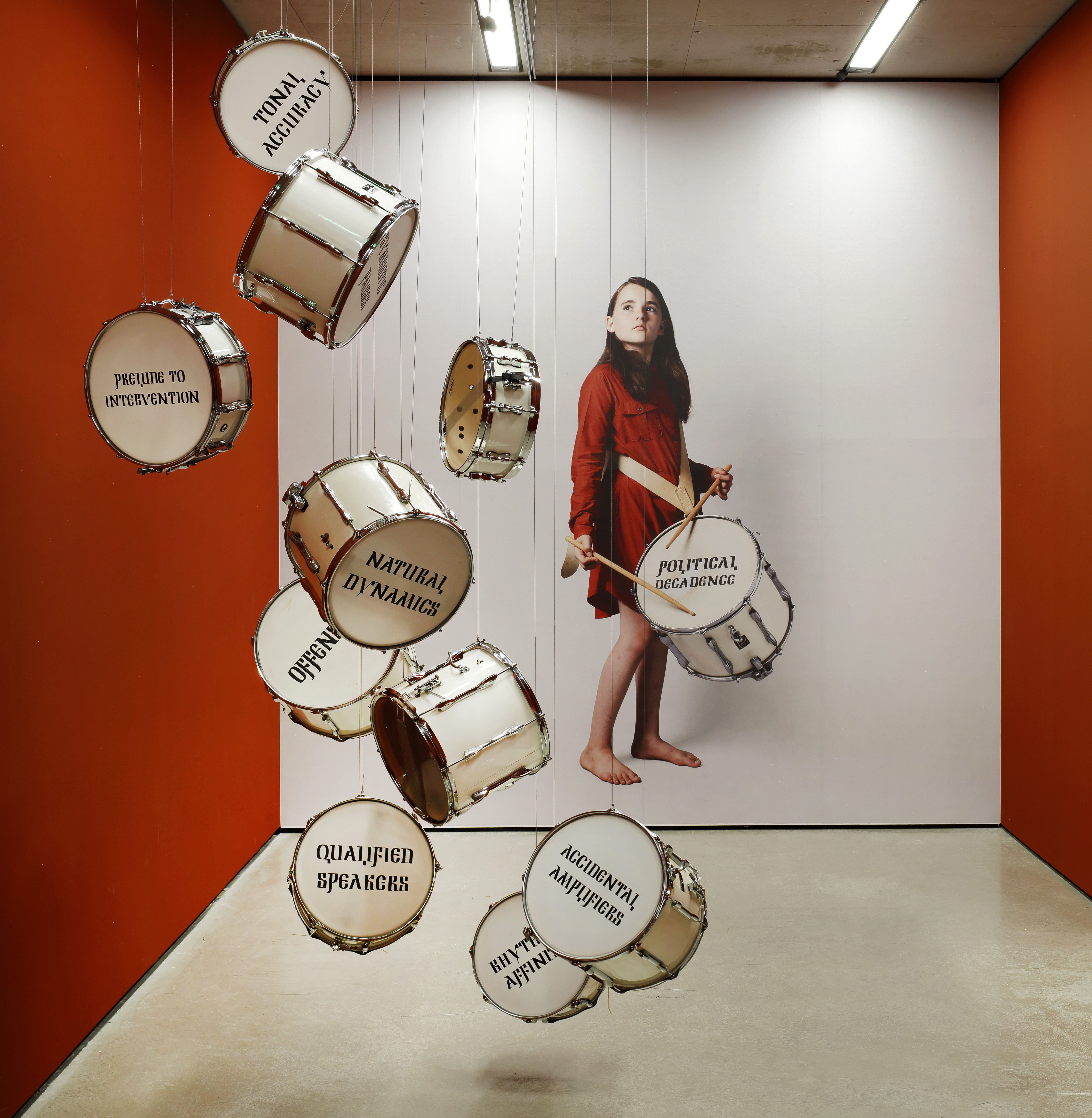
The recognition of power and of the influence of art and architecture on society and politics is at the core of her artistic work. To this end, she explores the crises of the twentieth century, in which political power relations were subject to radical upheavals and states used culture as propaganda for their ideologies. The exhibition Jasmina Cibic. Most Favoured Nation at the Museum der Moderne Salzburg presents an emerging contemporary position that impressively demonstrates that art is always political, in the sense that it focuses on the essentials and provides impulses for reflection and diverse forms of engagement. The exhibition opens with the new installation Most Favoured Nation (2022). The title refers to the most-favored-nation (MFN) principle in trade agreements of the World Trade Organization (WTO), which guarantees equal trade conditions for all participating contracting parties. The WTO deals with the regulation of the MFN principle between nations, ensuring that trade is as smooth, predictable, and free as possible. Cibic uses this principle from trade law as a conceptual model for her new work, analyzing new conditions for those active in the cultural sector of the European Union. These new conditions are a direct consequence of the emergence of right-wing populist governments, which has resulted in an increase of politically motivated interventions especially funding programs and staffing policies of institutions. With Most Favoured Nation, Cibic formulates the leitmotif of the exhibition, which recurs in different ways in the assembled works and in the specially designed exhibition architecture.
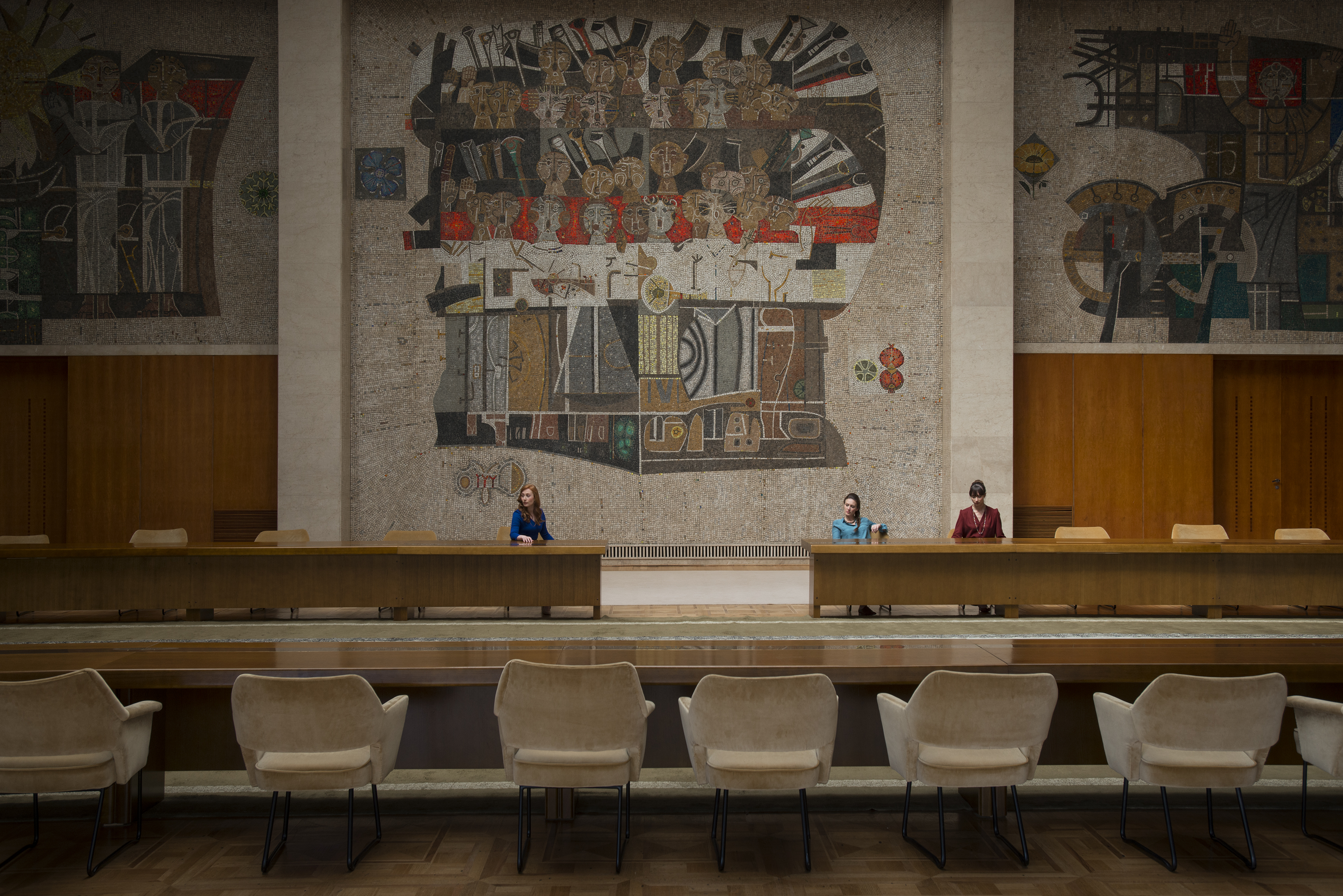
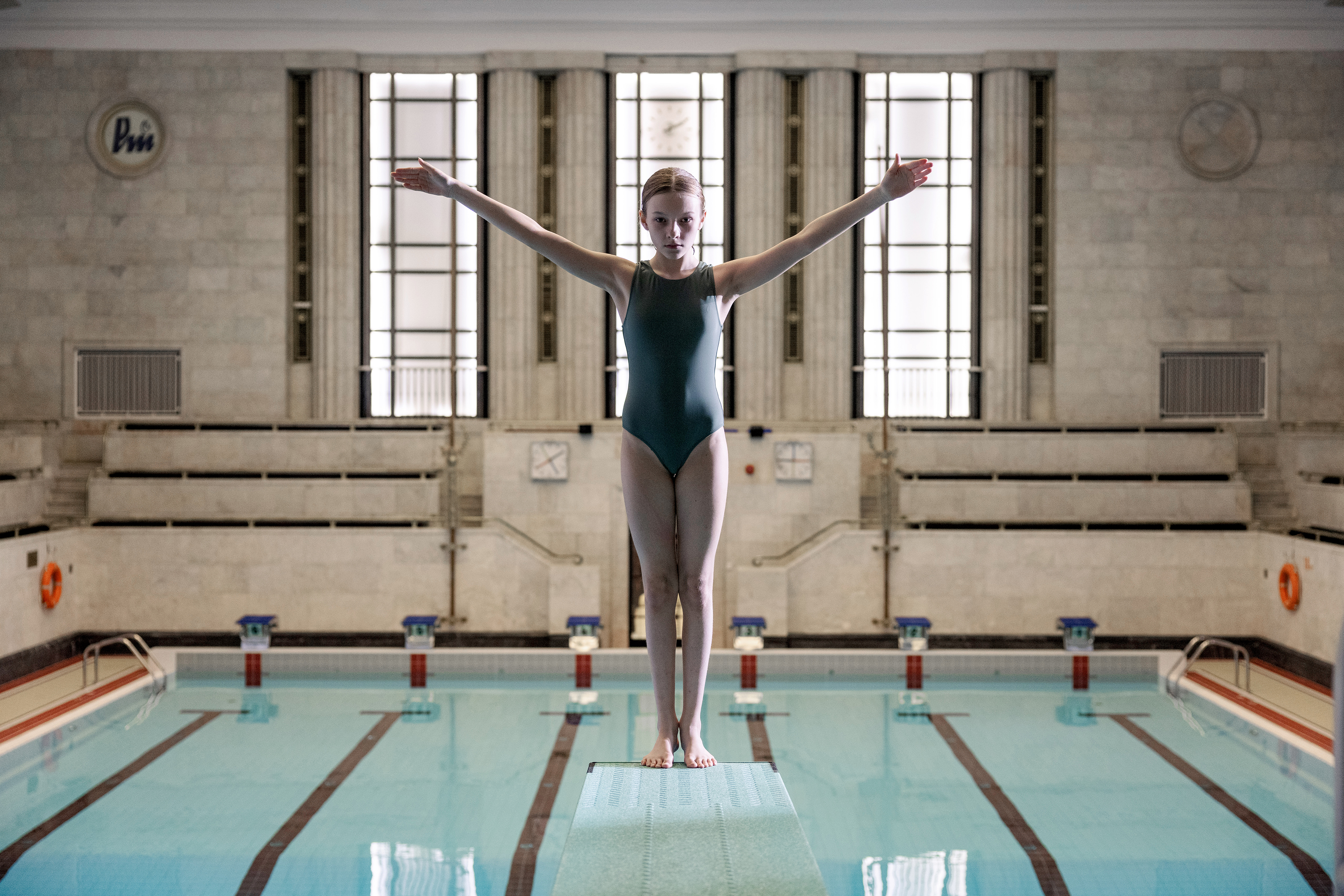
Cibic’s most recent film, The Gift (2021) – for which she was awarded the 2021 Film London Jarman Award – belongs to a group of works called The Gift Economy. The title of this body of work refers to a specific system and culture of gift-giving; it describes a social system based on the principle of solidarity, in which gifts are offered without monetary compensation. Instead, an intangible return is expected, such as gratitude or loyalty. The gift economy has been a focus of Cibic’s research for several years now. She is particularly interested in political gifts as forms of cultural diplomacy, which she addresses in the exhibition with the photograph Lipizzaner 508 Neapolitano Thais XL (b. 11.04.2005).
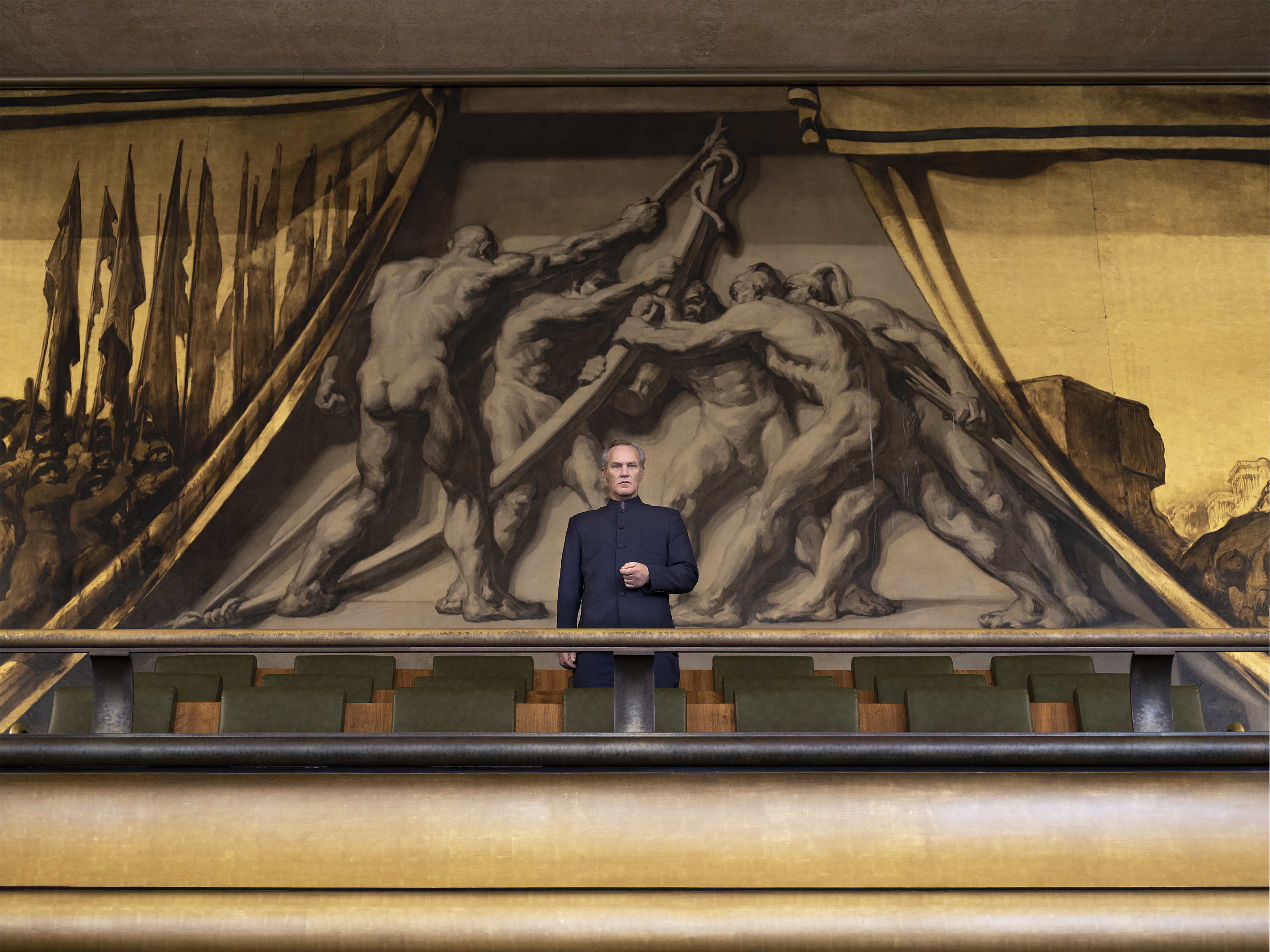
This depicts a horse of the Lipizzan breed wearing a halter with a mouth speculum. This instrument is used in veterinary medicine to hold open the jaw of an animal so that its age and health – and thus its value – can be determined by examining the teeth. The Lipizzan became world renowned thanks to the Spanish Riding School in Vienna. At the time of the Habsburg monarchy, they were bred at the Lipica stud farm, in what is now Slovenia, and exported to Vienna. For a long time, there were bilateral disagreements between Austria and Slovenia about the genealogy of the horses. In 2020, the dispute was settled, and both countries submitted a joint application to UNESCO to have the Lipizzan registered as intangible cultural heritage. To this day, the horses are used as gifts of the state to be gifted to other nations as part of diplomatic rituals. In 2009, the Slovenian state gifted the Lipizzan portrayed in Cibic’s photograph to the Libyan leader Muammar al-Gaddafi. This horse carries a genetic flaw and is thus unable to produce licensed offspring; as such, it is an embodiment of the Trojan horse – a metaphor par excellence for how culture can turn the spotlight on its own political instrumentalization.
